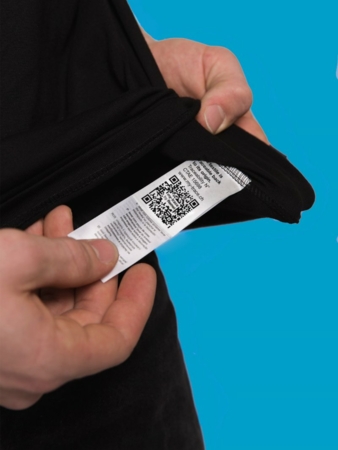18/03/2022 – Traceability — auf Deutsch lesen
Cotton fibres traceable back to the origin
With the digital traceability tool my-trace by Remei, the organic cotton textile trader Remei is fully disclosing the manufacturing process of textiles.
The company from Switzerland makes the journey of a textile directly visible via a sewn-in QR code – as far back as the organic cultivation of the fibres in India and Tanzania.
Several brands are cooperating with Remei for their own-brand ranges and already using the new tool. The list includes Coop Switzerland, Gerry Weber, Greenpeace Magazin, Grüne Erde, Maas, Maloja, Mammut, ZRCL and Wöhrl. A new customer is Bergfreunde – an online shop for mountain climbing and outdoor equipment – that has been stocking the first fully traceable products since November. “As an outdoor company, it is very important to us that we act in an ecologically responsible way. The Bergfreunde collection produced with Remei is a flagship project for us and we have made sustainability and transparency our top priority throughout the entire planning and production process. Via the QR code on the FSC-certified hangtag, end consumers can access the Remei traceability tool and see the product’s entire manufacturing and supply chains,” says Benedikt Bombeiter, Team Lead Own Brand, Bergfreunde GmbH.
This complete traceability and transparency can be attributed to the fact that Remei can guarantee the availability of organic cotton for retail customers’ collections because they have their own organic farming businesses. Remei starts monitoring the manufacturing process right at the source of the raw materials in India and Tanzania: Remei India Ltd. and Remei Tanzania Ltd. (formerly bioRe India Ltd. and bioRe Tanzania Ltd.) work with around 5,000 smallholder farmers in India and Tanzania.




